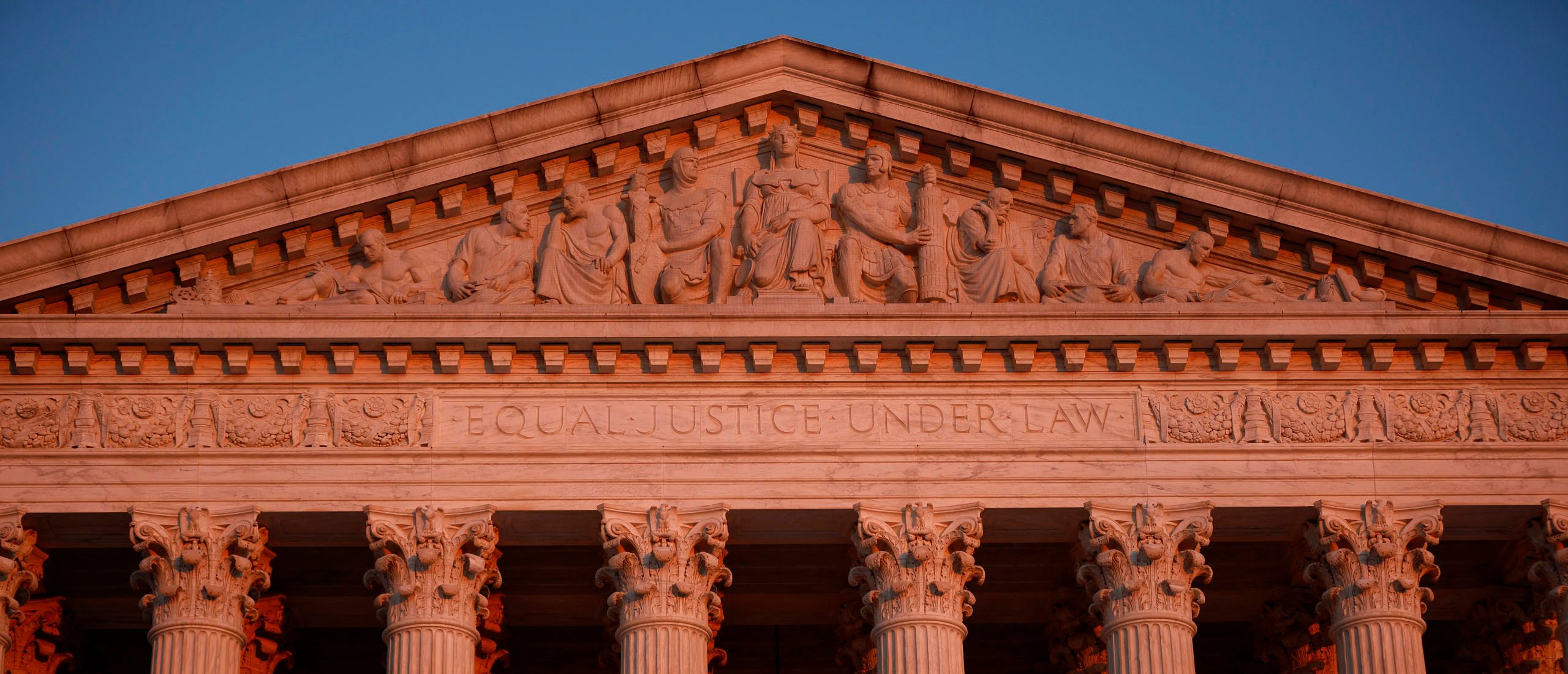
Supreme Court Shoots Down Legal Theory That Would Have Reshaped Elections

(SAUL LOEB/AFP via Getty Images)

KATELYNN RICHARDSONCONTRIBUTOR
June 27, 202310:30 AM ET
Justices ruled 6-3 Tuesday in Moore v. Harper to reject the “independent state legislature theory,” the idea that legislatures have unrestricted power under the Constitution to administer federal elections without review from state courts.
The Supreme Court held that the Constitution’s Elections Clause “does not vest exclusive and independent authority in state legislatures to set the rules regarding federal elections.” The case stems from the North Carolina Supreme Court’s decision in February 2022 to toss a congressional map drawn by the Republican-led legislature after the 2020 census as “an egregious and intentional partisan gerrymander.”
Chief Justice John Roberts wrote the majority, joined by Justices Sonia Sotomayor, Elena Kagan, Brett Kavanaugh, Amy Coney Barrett and Ketani Brown Jackson.
“State courts retain the authority to apply state constitutional restraints when legislatures act under the power conferred upon them by the Elections Clause,” Roberts wrote. “But federal courts must not abandon their own duty to exercise judicial review. In interpreting state law in this area, state courts may not so exceed the bounds of ordinary judicial review as to unconstitutionally intrude upon the role specifically reserved to state legislatures by Article I, Section 4, of the Federal Constitution.”
In this case, the Supreme Court determined it “need not decide whether the North Carolina Supreme Court strayed beyond the limits derived from the Elections Clause,” affirming the judgement of the state supreme court.
WASHINGTON, DC – JANUARY 26: The U.S. Supreme Court building on the day it was reported that Associate Justice Stephen Breyer would soon retire on January 26, 2022 in Washington, DC. Appointed by President Bill Clinton, Breyer has been on the court since 1994. His retirement creates an opportunity for President Joe Biden, who has promised to nominate a Black woman for his first pick to the highest court in the country. (Photo by Chip Somodevilla/Getty Images)
The North Carolina Supreme Court recently reversed its 2022 ruling on April 28, finding that it did not have the authority to review the map under the state constitution. (RELATED: Alabama Legislature Has Just Weeks To Redraw Congressional Map After SCOTUS Ruling)
As a result, the Biden administration told the justices they should dismiss the case as moot; but the legislatures argued they should still rule on it because the state court did not touch the federal “independent state legislature” question, which would likely come before the Supreme Court again.





























